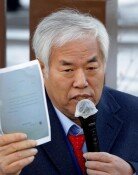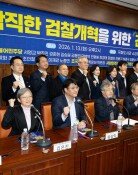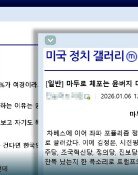[Op-Ed] The Bachelet Model of Raising the Birth Rate
[Op-Ed] The Bachelet Model of Raising the Birth Rate
Posted November. 12, 2009 06:09,
Chilean President Michelle Bachelet, who held a summit with President Lee Myung-bak yesterday, has been called the daughter of a general, medical student, torture victim, single mom, defector, health minister, defense minister, and separated mother of three children. As her countrys first female president, Bachelet has turned Chile into a powerful nation in Latin America by sticking to market economics, similar to Brazilian President Luiz Inacio Lula da Silva. Though rumors say her ruling center-left party could lose the presidential election early next year, her approval rating is hovering around 80 percent.
Bachelet has led a turbulent life. Since her father was a high-ranking military officer, she spent much of her childhood years abroad, moving with her family from one military base to another. Thank to this, she speaks Spanish, English, German, Portuguese and French. After her father was tortured to death by the authoritarian government of former military dictator Augusto Pinochet while she was a medical student, she was arrested with her mother and tortured for a month. She was eventually exiled to Germany via Australia and returned home to work as a pediatrician.
Given Chiles Catholic society, Bachelets status as a divorced mom and her pro-choice stance on abortion put her at a disadvantage politically. Her first two children were from her first marriage, and her third came after her divorce. After narrowly winning the presidential election in 2005 against center-right candidate Sebastián Piñera, Bachelet faced a slew of challenges such as overcoming a financial crisis, reforming education, and narrowing the gap between rich and poor. Just like President Lee Myung-bak of Korea, Bachelet has put her energy into improving public education for preschoolers to achieve social integration while implementing economic stimulus projects such as construction and mine development.
As president, she has helped set up about 3,500 kindergartens, or 2.5 per day on average, in poor areas. Children under age four from households in the bottom 40 percent of the income bracket get free meals and education in preschool. Mothers recently freed from childrearing have gotten jobs, leading to a drop in unemployment. By contrast, fertility rates have soared. In Seoul, Duksung Women`s University professor Shin Eun-soo said, Chiles infant school model shows that a country with low national income can succeed in public education for young children. This is what President Lee should learn from Bachelet to raise Koreas birth rate.
Editorial Writer Chung Sung-hee (shchung@donga.com)



![[속보]윤석열 사형 구형…내란특검 “전두환보다 엄정히 단죄해야”](https://dimg.donga.com/c/138/175/90/1/wps/NEWS/IMAGE/2026/01/13/133151283.1.jpg)



